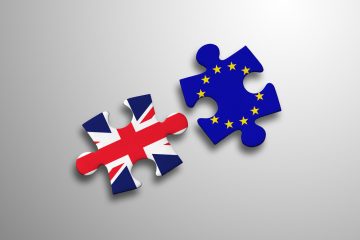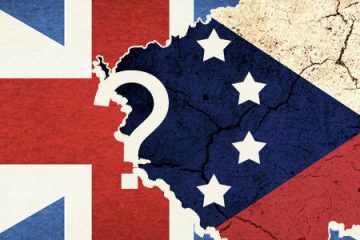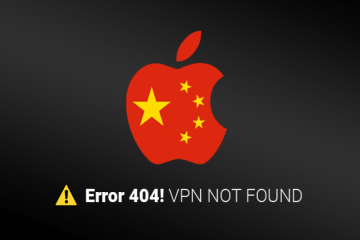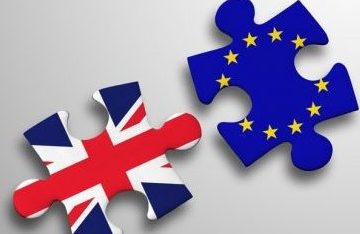
Waking Up Post Brexit: to a Colonizer Dream or a Colonized Reality?
President Donald Trump promised a “very big trade deal” between the US and the UK after Brexit. Prime minister Boris Johnson, however, was less certain, stating that it will not be “plain sailing.” As third prime minister since the Brexit referendum, he is aware that at the moment “the only certainty is uncertainty.” While Mr. Johnson insists that Brexit will take place on 31 October, it remains unclear what will come after Brexit. Brexit optimists paint a picture of unbound potential. Britain freed from the shackles of the EU and Common Market rules and regulations, is able to freely negotiate new trade deals. Embracing the Commonwealth is presented as alternative to remaining in the EU, which is seen as being …

Czech Brexit Policy: Low Level of Politicization and High Degree of Compliance
There are at least four reasons why one might expect Brexit to be a high-profile, politicized issue in Czech politics. First of all, there is increasing evidence that the European Union (EU) crises, of which Brexit is currently probably the most acute one, have led to increased politicization of EU politics in many member states. Secondly, the Czech EU debate is generally politicized and characterized by a predominantly critical tone. Indeed, the country has long been one of the most Eurosceptic EU member states, with a strong tradition of party-based Euroscepticism and a low level of public trust in the EU (according to the latest Eurobarometer survey, it has the third lowest level of public trust in the EU after …

Measuring Censorship on Mobile App Stores
Recent years have brought about improvements in corporate transparency regarding content takedown requests by governments. Google and Twitter, for instance, specify details of content takedowns in their transparency reports, allowing to identify which government authority demanded what content to be removed and why. Other takedowns can be demanded by private actors on copyright grounds for instance. The Lumen database gives more insight into takedowns of such nature. However, little to almost no transparency exists when it comes to mobile app stores. Mobile app stores are a sort of marketplace on phones and allow for the download of health, productivity, privacy, and other apps. These marketplaces are very opaque, and it is a challenge to know why an app was removed. …

Why We Need to Step up to the Regulatory Challenge of the Sharing Economy and New Financial Instruments
Throughout history, technological advances have put politicians and regulators in a difficult balancing act between embracing the benefits of the transformational changes brought by new technologies, versus providing reassurance to citizens that change can be managed and stability maintained. Take for example the advent of the self-propelled vehicles (cars), which was a response to 19th century society’s need for a quicker way to transport people and goods across the country. Concerned with the safety of the public and the potential harms that could result from the new technology, the British Parliament responded with The Locomotive Act of 1865. This included a maximum speed limit of 2 miles per hour and required a person carrying a red flag to walk at …

Britain’s Brexit Bargaining: Insights from Game Theory
As we enter a key Brexit endgame week, a few thoughts – informed by game theory – come to mind on the ironies of the British negotiation position and strategy thus far. The basic claim of bargaining theory is that you need a strong ‘reversion point,’ that you can go back to if bargaining fails. Once Article 50 was activated, that was necessarily ‘No Deal’ for the UK. But No Deal is likely self-damaging and certainly divisive. So, it did not and cannot represent a credible reversion point. Without this clear reversion point, one option is to pretend you want something self-damaging – the ‘madman’ approach. For this tactic to work, though, you need to be believed to be ‘mad’ …

Can Facebook govern itself?
It has been a tough few years for Facebook. Following Cambridge Analytica and the Russian interference in the 2016 election to ‘Definers-gate’, Myanmar, and a host of other crises, it is clear that, as Mark Zuckerberg has even now stated, ‘regulation is coming.’ Competition authorities, privacy regulators, and electoral commissions are all now grappling with the influence of big tech, but in the meantime, Facebook has begun implementing a series of much-needed policy changes and self-regulatory tweaks. In particular, transparency has emerged as a key means through which Facebook has attempted to regain the trust of the public, politicians, and regulatory authorities. These efforts are clearly no substitute for effective regulation, but have had an immediate impact that is worth …

It’s not you, it’s us! What the Brexit divorce tells us about the EU’s own weaknesses
According to social media in Russia, “Brexit” has just assumed a new meaning: you say goodbye, but never leave. Vasilij Petrovich has drunk half a bottle of vodka, broken some precious porcelain, offended the hosts, and despite saying goodbye, he is still sitting at the table and drinking. You feel like pushing him out to the cold, but this would create more problems than keeping him in. This story reflects the current European dilemma. For many years, the United Kingdom enjoyed the benefits of European integration without trying to become a constructive, let alone affectionate, EU member. Two years ago, it decided to leave the EU, but is still pondering whether to leave through the door, window or chimney. The …

How did Voting on the Brexit Referendum Affect Voting on May’s Brexit Deal?
On January 15, 2019, Prime Minister Theresa May’s Brexit deal suffered a defeat of historic proportion in the House of Commons: 432 MPs voted against and 202 for the ‘EU Withdrawal Act’, with a staggering margin of 230 votes. But how do the MP positions on May’s deal compare with the constituency-level votes on the 2016 referendum? [i] Notably, almost all the intra-party variation in voting takes place on the Tories’ side of the aisle. Only 3 Labour MPs bucked the party line and voted for the deal, whereas 118 Tories voted against May’s proposal. The plot below shows the distribution of constituency vote on the Brexit referendum by MPs voting either for or against the Brexit deal. The graph …









